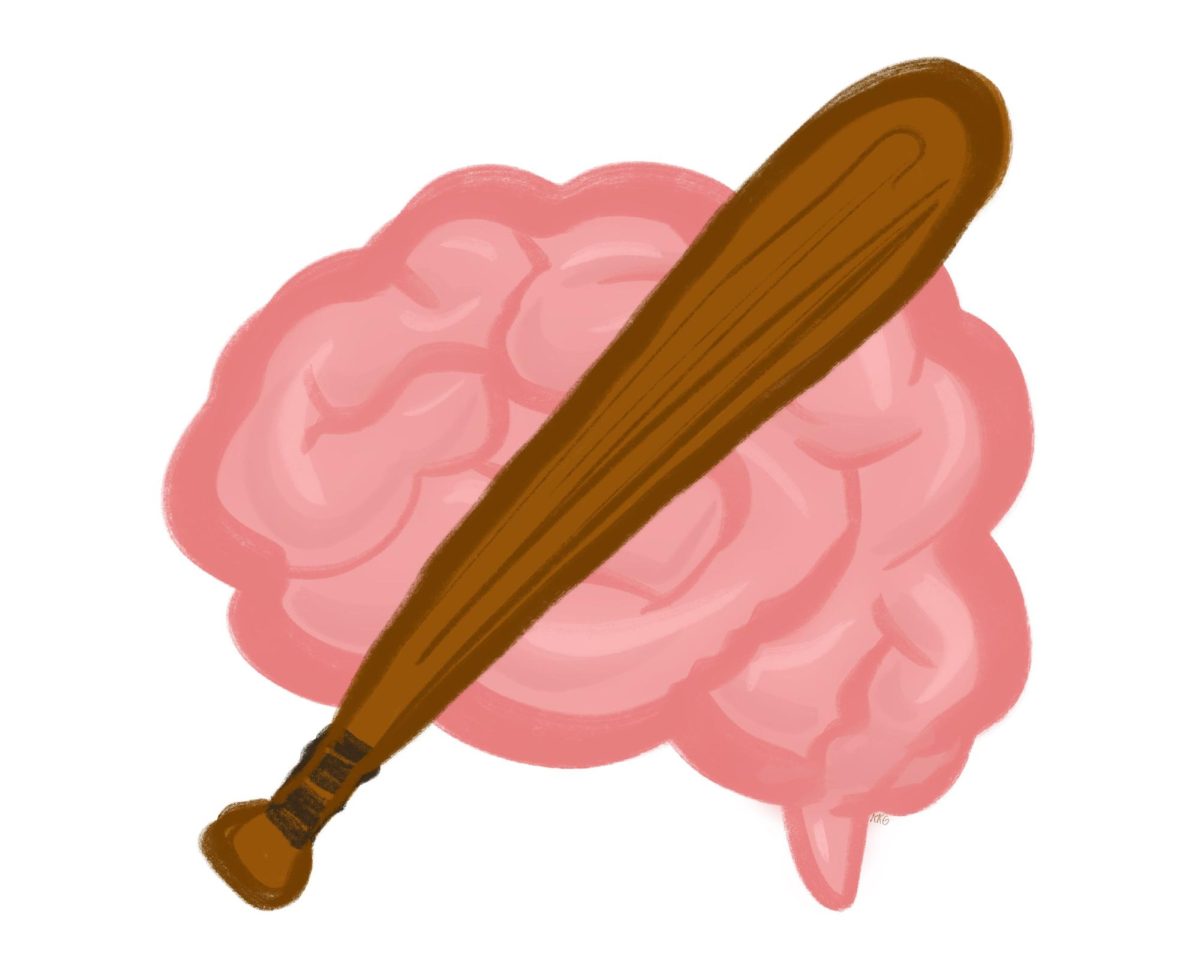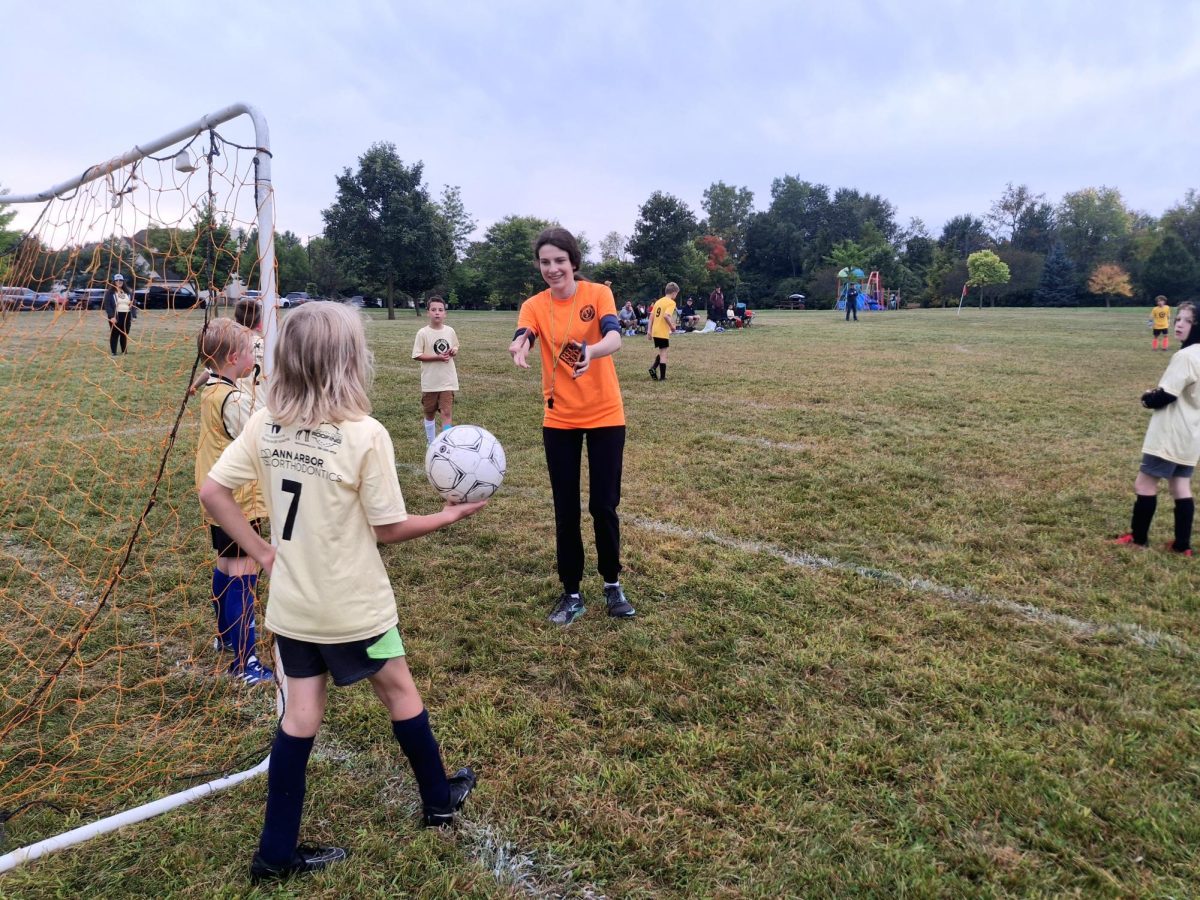“Walk it off” is a saying that is echoed by coaches and parents around the world. These three simple words perfectly encapsulate the suppression of mental health awareness in sports settings. While sports can be an outlet for some kids, a 2019 study found that about 35% of elite athletes have mental health concerns.
The same principle applies to high school athletes. The pressure of balancing academic performance with athletic commitment could be challenging. The pressure could put athletes in a stressful situation, affecting their well-being.
Owen Swaney, a varsity baseball player at Pioneer High School, balances coursework and athletics. Swaney feels that he often struggles to find stability and sometimes falls into unproductive habits. He feels either overly focused or unfocused, making it difficult for him to stay motivated throughout the semester. The need to balance a competitive sport only adds to the challenge.
“I definitely have that moment of feeling lost,” Swaney said. “Because when your life is that busy, it gets stressful just to make sure you get everything done on time. And it can be challenging.”
Swaney noted that finding the right balance can make managing academics and sports much easier. However, with high-stakes events like regional and state competitions, Swaney found himself putting a disproportionate amount of energy into his athletics, making it difficult for him to maintain good grades. Managing these competing demands can be a struggle for high school student-athletes.
Swaney finds that building a strong support system is helpful in handling the stress level of being a high school athlete. He believes that having a good support system, especially in his team, ensures that everyone holds each other up and supports each other during challenging times.
“It’s something that you have to experience to figure out a way that works for you to handle stress,” Swaney said. “It’s just something that kind of happens. There are different ways to do that, but I found that working through challenges and finding comfort and support in my teammates and coaches helped me.”
The study “Prevalence of Stress Amongst High School Athletes“ by Tavish Ward, Thor Stead, Rohan Mangal and Latha Ganti, published in Health Psychology Research, examines stress levels in high school athletes. The study included 200 high school athletes, ranging from age 16–17, from diverse sports and regions. Key findings strongly indicate a need for better mental health awareness for high school athletes.
According to the study, approximately 91% of respondents reported experiencing some level of stress in sports, with 58% experiencing moderate to extreme stress. When participants were asked why they thought sports caused stress, the most common responses were fear of failure, (64%) and self-pressure, (66.5%) with additional factors such as fear of judgment, unrealistic self-expectations and coach and parental pressure. In this particular study, the results also indicate that female athletes are likely to experience more stress in comparison to their male counterparts.
The study found that 78% of respondents who were experiencing moderate to extreme stress did not receive help. 27% of those same respondents wanted but did not receive help. When asked why not receiving help, the most common responses were being unsure of where to go, fearing judgment from others, lacking access, having financial difficulties and being embarrassed.
The mental health struggles of high school athletes are often overlooked. Phrases like “walking it off” ignore the real stressors high school athletes face. Balancing academics and sports, high-stakes competitive events and high expectations fromcoaches and parents are challenging for most high school athletes. We need a better-supporting system for those athletes than simply saying, “Walk it off.”
With more than 90% of the respondents in the research reporting experiencing some level of stress in sports, it is evident that we need to raise more awareness for high school athletes’ mental health.











